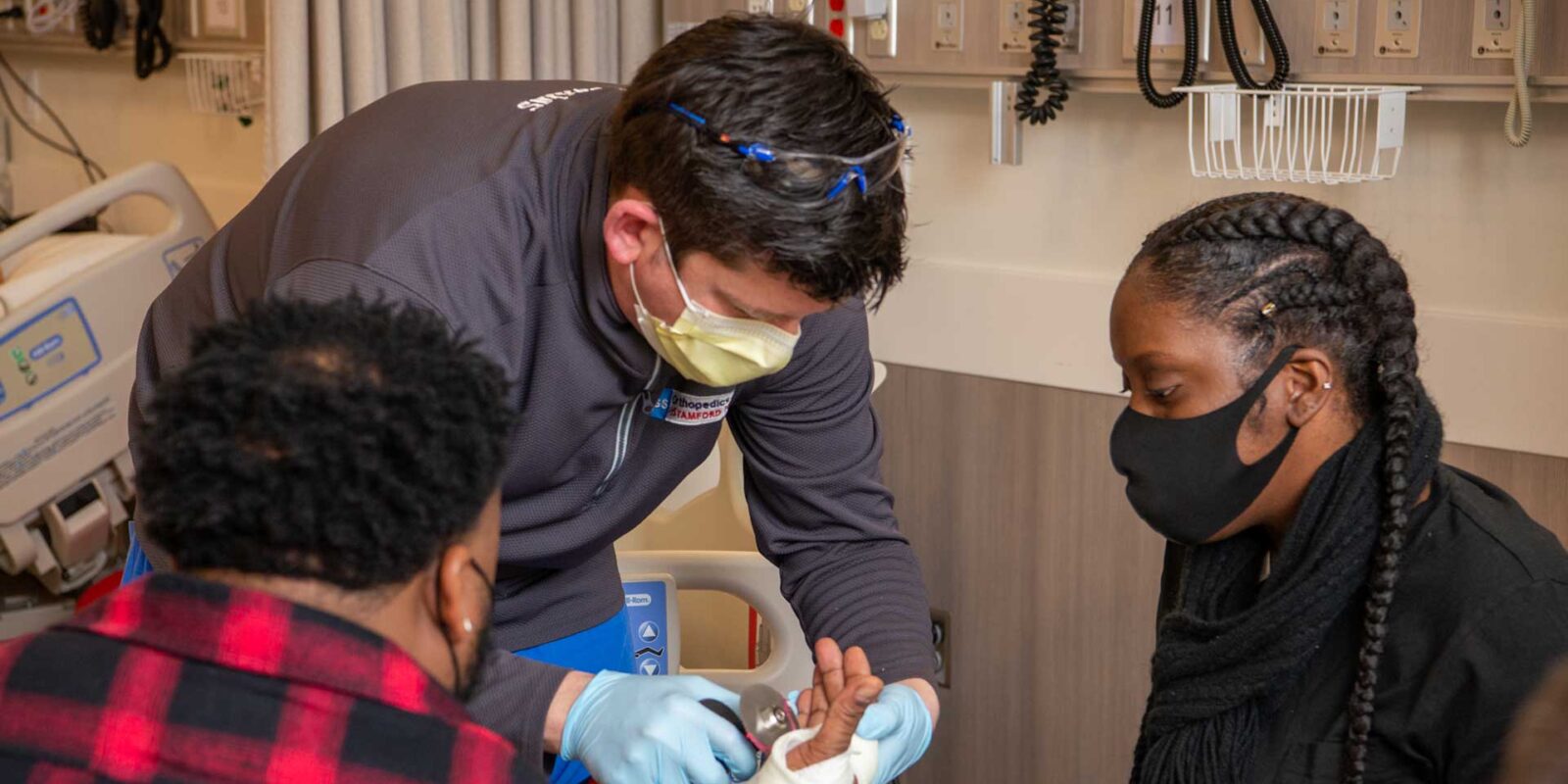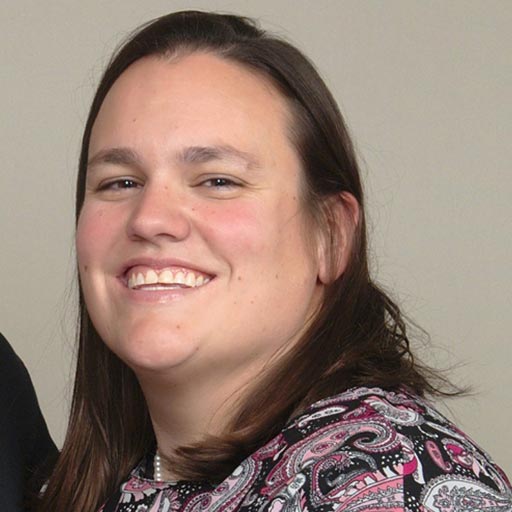MSN: Psychiatric Mental Health Nurse Practitioner (PMHNP) Online Program

Become Licensed as an APRN in Psychiatric Mental Health
Online with Residency Experiences
2.5-Year Duration
42 Credit Hours
$955 per Credit
Learn More Today
Complete the form to learn more about this program.
New Possibilities for Your Nursing Career Await in Psychiatric Mental Health
- One start date per year
- No GRE/GMAT requirements
Develop professional skills for caring for the mental and emotional needs of patients by completing the MSN PMHNP program online with Sacred Heart University. You’ll learn from clinical experts who impart conceptual knowledge and hands-on mastery while enabling you to support social justice and the common good. As a result, this online program empowers you to advance as a health care professional capable of making a positive impact in your community.
Sacred Heart designed the MSN: PMHNP online program for BSN-prepared nurses interested in becoming psychiatric mental health nurse practitioners. After earning this credential, you’ll be ready to pursue certification and APRN licensure in psychiatric mental health.
CCNE Accredited
The baccalaureate degree program in nursing, the master’s degree program in nursing, and the Doctor of Nursing Practice program at Sacred Heart University are accredited by the Commission on Collegiate Nursing Education, 655 K Street, NW, Suite 750, Washington, DC 20001, 202-887-6791.
MSN: Psychiatric Mental Health Nurse Practitioner Details
- Prepare for the certification exam from the American Nurses Credentialing Center (ANCC)
- Gain skills in managing the care of patients with mental health conditions
- Learn from faculty experts who provide a close mentoring relationship
- Complete residency experiences that foster hands-on learning
An Online Curriculum That Prepares You to Thrive as a Nurse Practitioner
While completing Sacred Heart’s online MSN: PMHNP program, you’ll learn to assess, diagnose and treat patients with a range of physical, mental and emotional health care needs. The specialized courses emphasize conceptual and practical knowledge, enabling you to become a force for good in your community by providing and promoting equitable, high-quality care to people at different stages of their lives.
Sacred Heart’s online MSN program includes core courses that explore health care policy and ethics, advanced pathophysiology, the principles of health care research and more. You will also gain hands-on experience through in-person residencies and 540 hours of practicum coursework, which provide the confidence and skills needed to prepare for certification and, eventually, licensure.
MSN: PMHNP Required Courses
This course, the first within the Family, Primary Care, and Community sequence, addresses selected family, primary care, and community theories within the context of advanced practice nursing and clinical leadership roles. The family system is viewed as both unique and dynamic, existing interdependently with the community and the environment and requiring advanced nursing expertise and caring at various times across the life cycle. Particular emphasis is placed on family and community assessment strategies, the impact of culture upon the family and community systems, and the impact of various primary care-oriented health problems on family roles and functions. In addition, relevant concepts and principles of epidemiology are applied to the current and emerging health status of families and communities. Faculty collaborate with students as they apply advanced clinical knowledge to the family system in a community setting. Students function interdependently with other health team members in the care of families and evaluate a plan of care using standards for advanced clinical practice.
This class focuses on the pharmacotherapeutic principles of drugs most commonly used in the primary care setting. Topics include the pharmacologic effects and clinical uses of various drug groups and classifications. Emphasis is placed on rational drug therapy for agent selection, monitoring drug therapies, identification and avoidance of adverse drug reactions and interactions, and extensive patient education and counseling.
Students learn to assess in the biopsychosocial health status of clients across the life span in depth by obtaining a complete and accurate health history and by performing a thorough physical examination, then using the acquired data to formulate a working medical diagnosis. Content is designed to provide correlation of assessment strategies with an understanding of the mechanisms of illness and health problems of the main body systems, as well as to address the integration of common medical testing. Students explore role of the advanced practice nurse in the current health care delivery system. The laboratory component enables students to develop advanced assessment skills.
This course provides FNP students with a comprehensive understanding of the pathophysiology of disease processes most commonly seen afflicting patients across the lifespan. Clinical pathology content addresses alterations in major body systems that are commonly found in primary care settings, as well as common testing used in the diagnostic process.
This course builds on knowledge of advanced pharmacology, pathophysiology, and health assessment by examining safe and effective use of medications used to treat mental health disorders across the lifespan. Topics will include the examination of pharmacodynamics, pharmacokinetics, and drug interactions of these medications in congruence with the most recent evidence. Underlying pathophysiologic processes of mental health disorders are examined to provide context for differential diagnosis and pharmacological management. These disorders include major depressive disorder, post-traumatic stress disorder, anxiety, bipolar illness, and psychosis across the lifespan, including medications used in special populations such as pediatrics, the geriatrics, and pregnancy. Additional focus is the impact of the psychoactive medications on the client, family and community. Content is presented in relation to the role of the psychiatric-mental health nurse who functions in an advanced role. Students learn important considerations for selecting medications to include best practices and clinical guidelines, patient preference, safety profile, setting, monitoring requirements, and long-term patient management.
This course provides theoretical and clinical content, including 180 supervised required hours of advanced practice psychiatric mental health nursing care across the lifespan with emphasis on late adolescence through adulthood, within a variety of behavioral health settings.
The focus is on clinical assessment, diagnosis, and treatment decision-making for commonly encountered behavioral health disorders in adults. From the patient interview and assessment to the diagnostic work-up and treatment planning, students learn to apply concepts from prior coursework to understand patients’ underlying psychopathological processes and develop differential diagnoses and management plans, including psychopharmacologic treatments and psychotherapeutic modalities.
This course requires theoretical and clinical content, including a total of 180 supervised required hours of care across the lifespan with emphasis on pediatric and adolescent patients within a variety of behavioral health settings. A minimum of 100 hours of clinical practicum is specifically devoted to the care of patients under age 18. The focus is on refining and developing increased competency as a PMHNP in diagnostic and clinical interventions with an increasingly diverse and complex caseload, including crisis intervention and managing psychiatric emergencies. Identification and treatment of developmental and age-specific disorders, genetic aspects of disease presentation and treatment, as well as interdisciplinary perspectives and community resources are emphasized. 180 hours of supervised required hours of care.
This course provides theoretical and clinical content, including 180 supervised required hours of advanced psychiatric mental health nursing care across the lifespan with emphasis on individuals, including older adults, couples, and families, within a variety of behavioral health settings. Students examine multi-factorial influences of individual and family functioning and coping, among patients of all ages from pediatric to older adults, including those with co-occurring medical and psychiatric conditions. By also incorporating knowledge of the generational impact of behavioral health conditions on families, students learn strategies to promote effective assessment, diagnosis, and intervention for psychiatric disorders affecting individuals and families. Further refinement of clinical diagnostic and treatment competencies, including a focus on outcomes evaluation for acute and chronic mental health conditions, termination, and increased independence within the role of the PMHNP are emphasized. 180 required hours of advanced practice psychiatric mental health nursing care.
In addition to the specialization requirements, you’ll take core courses to acquire foundational knowledge for advanced nursing roles. Taught by our experienced faculty, these courses explore health care policy, the principles of health care research, evidence-based practice and beyond.
View Program CurriculumCapitalize on Accelerated Growth for Nurse Practitioners
Completing the MSN: PMHNP online program helps you do more than enhance your patient care abilities — you can also meet the growing demand for nurse practitioners. The Bureau of Labor Statistics projects that about 128,400 nurse practitioner roles will be created from 2024 to 2034,1 and Sacred Heart prepares MSN graduates to succeed in roles across hospitals, outpatient care facilities and other health care settings.
Nurse Practitioner Median Salary $129,210 Per Year1
Nurse Practitioner Job Growth 40% 2024 to 20341
Faculty: Accomplished and Accessible
In your MSN online program, you will work directly with doctorally prepared faculty members with years of experience in their nursing specialties, extensive scholarly credentials and cutting-edge knowledge from the field. In addition to being well-versed in online teaching, our award-winning professors are available to answer your questions and offer support as you take the next step in your nursing journey.

Program Director – Online Graduate Nursing Programs & Associate Clinical Professor
Faculty Spotlight: Mary B Kaylor, Ph.D., RN
Dr. Mary Beth Kaylor received her Bachelor of Science in Nursing at Wright State University and began working in the Emergency Department at Children’s Medical Center in Dayton, Ohio while attending. She completed a Masters in Nursing and Health Systems Administration and PhD in Nursing with a cognate focus in health policy from the Ohio State University. After graduation she began teaching nursing at Wright State University. While there she completed a Masters in Public Health and a Certificate in Nursing Education. She also completed the Center for Transdisciplinary Evidence-based Practice Immersion program at the Ohio State University and the Intermediate Improvement Science Series program at Cincinnati Children’s Hospital.
Mary Beth also served as a nursing research consultant for the Kettering Health Network and worked for the Ohio Department of Medicaid. She has been the PI for many research projects including an AHRQ funded study on telemedicine, bed bugs prevalence, caring in hospital based nurses, and faculty/nursing beliefs about evidence based practice to name a few. She currently serves on the State of Ohio Department of Health Institutional Review Board.
Degrees & Certifications
- PhD, The Ohio State University
- MPH, Wright State University
- MS of Nursing, The Ohio State University
- BSN, Wright State University
- Certified Nurse Educator
- Advanced Public Health Nurse – Board Certified
Teaching Responsibilities
- Nursing Role Development
- Executive Nursing Leadership Practicum
- Research
Awards & Fellowships
- Nominated 2018 Excellence in Educational Research Award
- Sigma Theta Tau

Associate Professor & Assistant Program Director
Faculty Spotlight: Melissa Scollan Koliopoulos, EDD, DNP, FNP, PMHNP, PMHS, CDCES, CNE
Dr. Melissa Scollan Koliopoulos is an Associate Professor & Assistant Program Director-Psychiatric Mental Health Nurse Practitioner Program at the Susan L. Davis & Richard J. Henley College of Nursing, Sacred Heart University. She has over two decades of professorial experience in nursing, public health, and medical school faculty roles. She has served as a Principal Investigator on health and behavior studies with an emphasis in the elimination of health disparities in underserved populations. Her major research focus has been on using self-regulation and illness perception to predict health outcomes. She is dually certified in two nurse practitioner specialties, psychiatric mental health care and family primary care. She is also certified as a diabetes care and education specialist. Dr. Scollan Koliopoulos served in the military and was honorably discharged from the Air National Guard of New Jersey.
What You’ll Learn
Sacred Heart’s MSN program delivers competencies that you’ll need to excel in today’s diverse health care community. Through the core and specialization courses, you can prepare to improve patient outcomes, pursue nurse practitioner positions, lead nursing teams and teach in clinical settings.
Program Learning Outcomes
- Translate into action the knowledge from philosophical and theoretical traditions of nursing science and other disciplinary perspectives to facilitate the ethical integration of evidence-based practice to advance nursing scholarship.
- Lead collaboratively within the interprofessional team to develop and evaluate plans of care with evidence-based, person-centered care principles promoting quality and safety outcomes.
- Collaborate with strategic partners to implement health policy while advocating for equitable and sustainable population health care.
- Integrate complex systems-based practice to develop innovative and evidence-supported equitable solutions to improve health outcomes across the lifespan of diverse populations.
- Apply best practices of informatics and communication technologies in diverse care settings to collect, analyze and synthesize data to promote quality and safe health care outcomes.
- Demonstrate professional behaviors reflecting current regulations, policies and practice integrating professional concepts, including ethics, compassion, diversity, equity and inclusion.
- Model leadership within the nursing profession that embraces self-care, a spirit of inquiry, advocacy, change, mentorship and service to others.
Explore More MSN Specializations
We offer additional MSN specializations to deliver the specific nursing expertise your goals demand. Explore these options to embark on your journey to becoming a nurse practitioner, educator or leader.
Frequently Asked Questions
If you have a question we don’t cover here, request more information or call 877-791-7181.
Yes. The baccalaureate degree program in nursing, the master’s degree program in nursing, and the Doctor of Nursing Practice program at Sacred Heart University are accredited by the Commission on Collegiate Nursing Education, 655 K Street, NW, Suite 750, Washington, DC 20001, 202-887-6791.
For nurses who are evaluating prospective programs, the accredited status tells them that the education they receive will provide them with the knowledge to practice at the next level in their nursing career. It’s also significant for students who may want to continue to further education, as most master’s degree programs will not accept candidates whose BSN has not been conferred from an accredited university or program.
The deadline is four weeks prior to the start date unless the program has reached capacity. We encourage you to apply early and secure your spot in the program if you’re considering the upcoming term.
There is no licensure for this program. The online MSN in Clinical Nurse Education will make you eligible to sit for the Nurse Educator Certification from the National League for Nursing.
You’ll complete 36–39 credits to earn your MSN, depending on the specialization you select.
We like to keep our class sizes small. Sacred Heart’s nursing programs typically have 15-28 students per online course.
You can earn a Master of Science in Nursing with Sacred Heart University within two years.
Source
- Bureau of Labor Statistics, U.S. Department of Labor. Occupational Outlook Handbook. “Nurse Anesthetists, Nurse Midwives, and Nurse Practitioners.” Retrieved Sept. 23, 2025, from https://www.bls.gov/ooh/healthcare/nurse-anesthetists-nurse-midwives-and-nurse-practitioners.htm.
